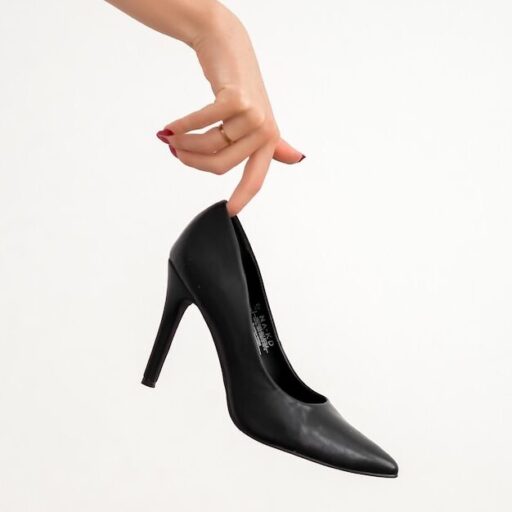Support our educational content for free when you purchase through links on our site. Learn more
Which Shoe Brand is Most Popular? [2024]
Have you ever wondered which shoe brand is the most popular? With so many options available in the market, it can be overwhelming to choose the right brand that suits your style and needs. In this article, we will explore the most popular shoe brands and provide you with all the information you need to make an informed decision. So, let’s dive in and find out which shoe brand reigns supreme!
Quick Answer
Nike, Adidas, and New Balance are the top three most popular shoe brands. Nike leads the pack with its iconic designs, innovative technology, and strong brand presence. Adidas follows closely behind, known for its stylish and athletic footwear. New Balance, with its focus on comfort and performance, rounds out the top three.
✅ Nike
✅ Adidas
✅ New Balance
Quick Tips and Facts
- Nike is the most popular shoe brand in the United States, followed by Adidas and New Balance.
- Nike has the highest usage share among consumers.
- Adidas enjoys significant brand awareness and preference.
- New Balance is known for its comfort and performance-oriented footwear.
Background: The Rise of Sneaker Culture

Before we delve into the most popular shoe brands, let’s take a moment to appreciate the rise of sneaker culture. Sneakers have evolved from being just athletic footwear to a fashion statement and cultural symbol. From basketball courts to runways, sneakers have become an integral part of our everyday style. The sneaker industry has witnessed tremendous growth, with brands constantly pushing the boundaries of design and technology.
1. Nike: The Undisputed Champion
When it comes to popularity, Nike takes the crown. With its iconic swoosh logo and innovative designs, Nike has captured the hearts of sneaker enthusiasts worldwide. Nike’s success can be attributed to its ability to blend style and performance seamlessly. From the classic Air Jordan line to the groundbreaking Nike Air Max, the brand has consistently delivered cutting-edge footwear.
Nike’s dominance extends beyond the sneaker world. The brand’s collaborations with athletes, musicians, and fashion designers have elevated its status to a cultural phenomenon. Whether you’re a professional athlete or a fashion-forward individual, Nike offers a wide range of options to suit your needs.
If you’re looking for the latest Nike sneakers, you can check them out on Amazon or on the official Nike website.
2. Adidas: The Stylish Contender
Adidas is a close second in the popularity race. Known for its sleek designs and athletic footwear, Adidas has carved a niche for itself in the sneaker market. The brand’s three-stripe logo is instantly recognizable and has become synonymous with style and performance.
Adidas has successfully collaborated with celebrities and designers, creating limited-edition collections that are highly sought after. From the classic Stan Smiths to the futuristic Ultra Boost, Adidas offers a wide range of sneakers for every occasion.
If you’re interested in exploring Adidas sneakers, you can find them on Amazon or on the official Adidas website.
3. New Balance: The Comfort Champion
While Nike and Adidas dominate the sneaker market, New Balance holds its own with its focus on comfort and performance. The brand is known for its cushioning technology and wide range of sizes and widths, catering to individuals with specific foot needs.
New Balance sneakers are favored by athletes and fitness enthusiasts for their superior comfort and support. The brand’s commitment to quality and craftsmanship has earned it a loyal following. Whether you’re hitting the gym or going for a casual stroll, New Balance has a shoe for you.
If you’re interested in trying out New Balance sneakers, you can find them on Amazon or on the official New Balance website.
4. Other Notable Shoe Brands
While Nike, Adidas, and New Balance take the top spots, there are several other notable shoe brands worth mentioning:
- Puma: Known for its sporty and stylish footwear, Puma offers a wide range of sneakers for both athletes and fashion enthusiasts.
- Reebok: With its heritage in fitness and training, Reebok continues to produce innovative sneakers that combine style and performance.
- Jordan: A subsidiary of Nike, Jordan is renowned for its basketball sneakers, particularly the iconic Air Jordan line.
These brands have their unique offerings and cater to different tastes and preferences. It’s always a good idea to explore different brands and find the one that resonates with your style and needs.
FAQ

What is the number 1 shoe brand?
The number one shoe brand is Nike. With its iconic designs, innovative technology, and strong brand presence, Nike has captured the hearts of sneaker enthusiasts worldwide.
Read more about “Famous Shoe Brands …”
What is the most popular shoe brand right now?
The most popular shoe brand right now is Nike. Known for its cutting-edge designs and cultural impact, Nike continues to dominate the sneaker market.
Read more about “What is the most popular shoe brand right now?”
What is the #1 selling shoe in the world?
The #1 selling shoe in the world is the Nike Air Force 1. This iconic sneaker has stood the test of time and remains a favorite among sneaker enthusiasts.
Read more about “What Was the Most Popular Shoe Brand? …”
Which shoe brand sells the most?
Nike sells the most shoes globally. The brand’s strong brand presence, innovative designs, and wide range of offerings contribute to its sales success.
Conclusion

In conclusion, Nike, Adidas, and New Balance are the most popular shoe brands. Nike leads the pack with its iconic designs and innovative technology, while Adidas offers stylish and athletic footwear. New Balance focuses on comfort and performance, catering to individuals with specific foot needs. Each brand has its unique offerings, and it’s important to find the one that aligns with your style and preferences.
If you’re interested in exploring the latest sneakers from these brands, you can check them out on Amazon or on their respective official websites.
Remember, the most popular shoe brand may not necessarily be the best fit for everyone. It’s essential to consider factors such as comfort, style, and performance when choosing the right shoe brand for you. Happy shoe shopping!

